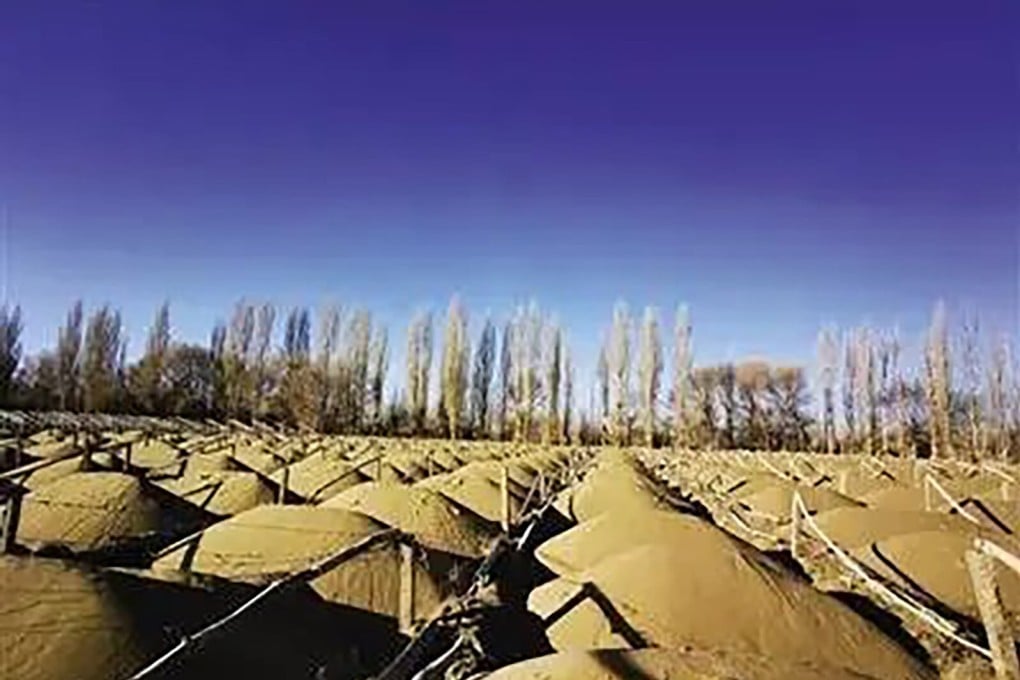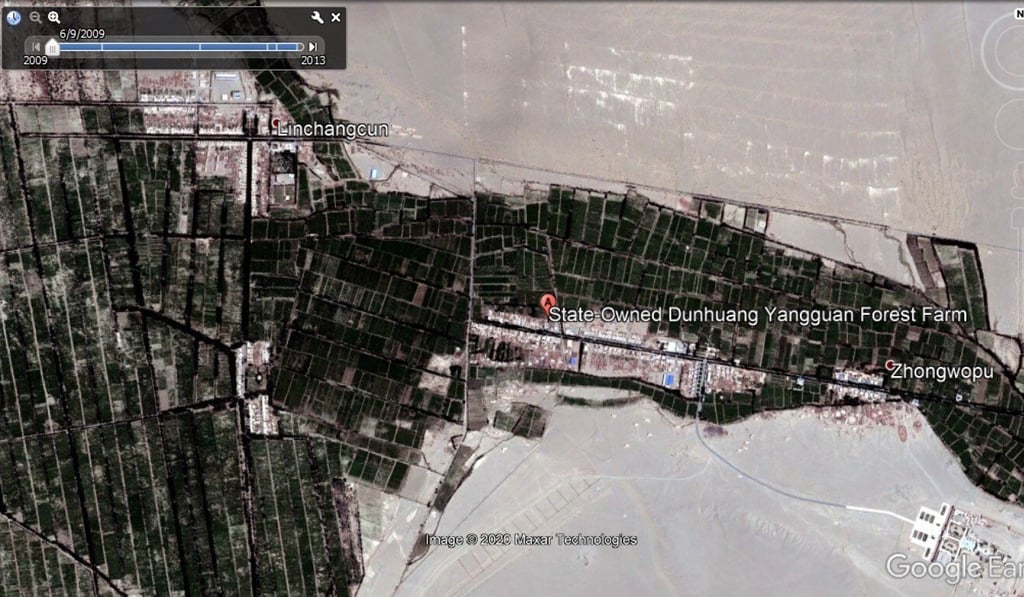Chinese environmentalists up in arms over forest destroyed to make way for vineyards
- The authorities in Gansu have promised to investigate amid a growing outcry over the loss of the forest near the ancient Silk Road city of Dunhuang
- The site was intended to protect the area from desertification and its loss could trigger ecological catastrophe

The destruction of a forest in China’s arid northwest to make way for vineyards has triggered an investigation by the local authorities as environmentalists warned it could cause an ecological disaster.
The forest was planted in 1963 to protect the area from desertification and sand storms. But in recent decades it has shrunk in size from just over 13 square km in 2000 to just over 3 square km today, according to a report in Economic Information Daily.
The report, published on Wednesday, prompted an editorial from the Communist Party mouthpiece, People’s Daily, which said the deforestation could cause serious damage to the environment and those responsible must be held fully accountable.

Gansu’s investigation will be led by deputy governor Liu Changgen, who previously worked for the national environmental watchdog.